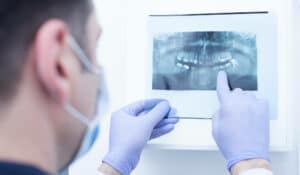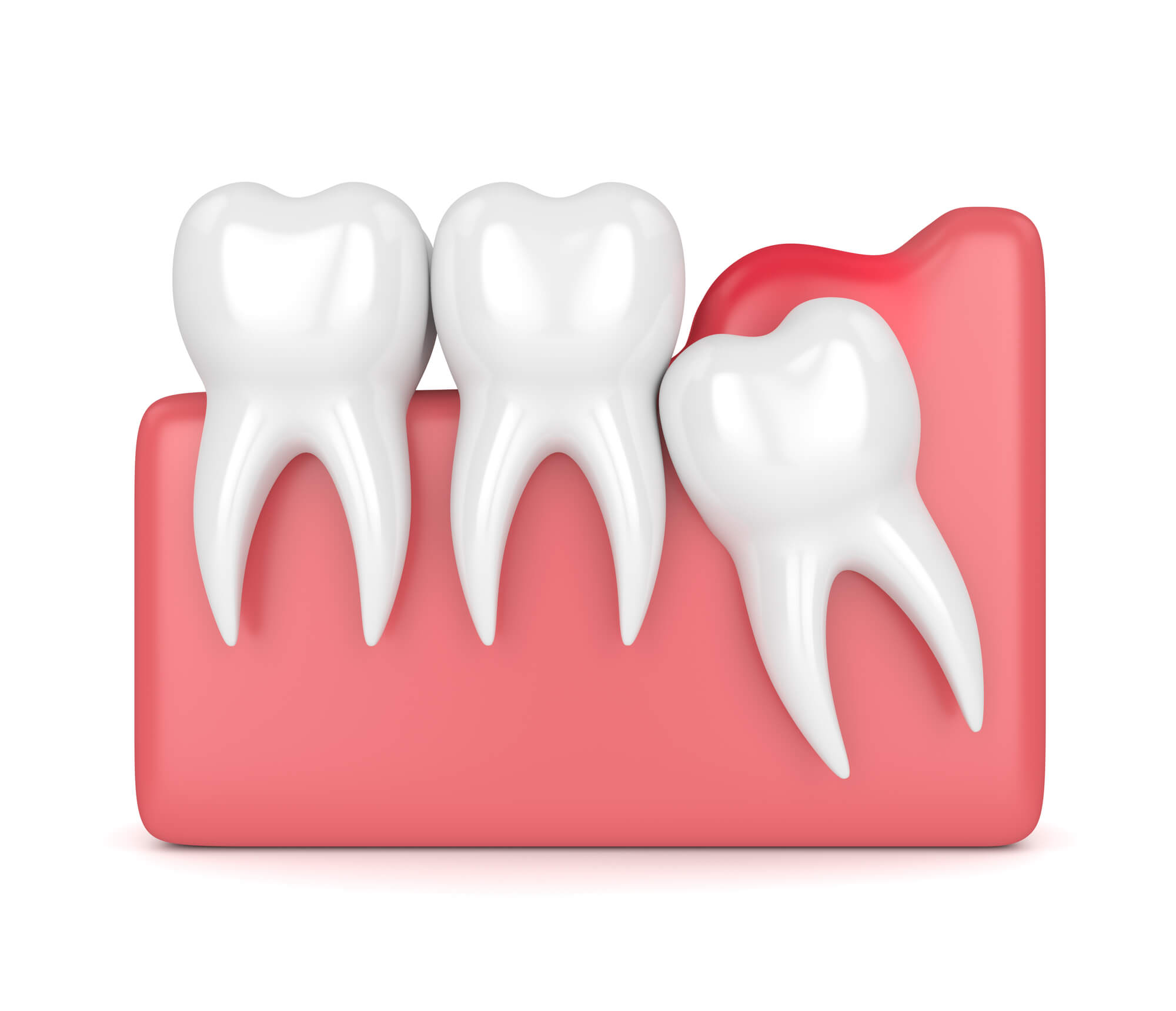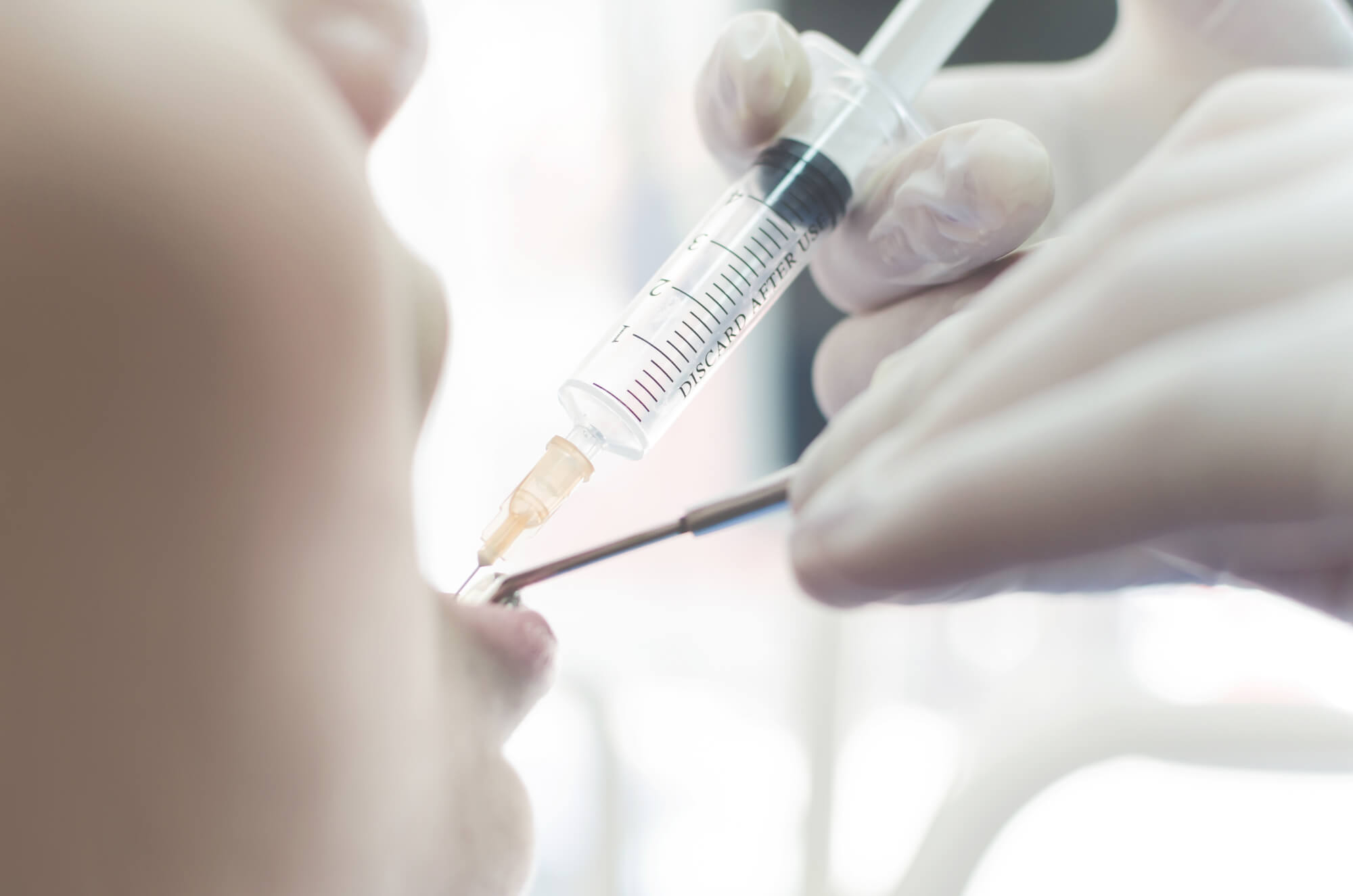Wisdom teeth, or third molars, are the last set of teeth to emerge, typically in late adolescence or early adulthood. Often, due to limited space in the jaw or the angle at which they grow, wisdom teeth can become impacted—trapped beneath the gum line and unable to erupt normally. This can lead to a host of dental issues, such as pain, infection, and damage to adjacent teeth.

The extraction of wisdom teeth is performed under various forms of anesthesia to ensure comfort and manage pain during the procedure. Oral surgeons are trained to administer these forms of anesthesia and manage any complications that may arise.
Through a careful evaluation, including the use of dental imaging techniques, oral surgeons can determine the position of the wisdom teeth and devise a precise approach for removal, whether the teeth are visible or impacted. By carrying out the extraction procedure, they prevent potential long-term complications and preserve the patient’s oral health.
Guidance on oral hygiene after surgery is also provided to prevent infection and promote healing. This comprehensive care underscores the crucial role of oral surgeons in the management of wisdom teeth, from initial consultation through postoperative recovery.
BellaVista DentalCare provides expert guidance to ensure your well-being at every step in the management of wisdom teeth, from initial consultation through postoperative recovery. Get in touch with us now for more details!
Fundamentals of Wisdom Teeth
Wisdom teeth, also known as third molars, are typically the last set of teeth to develop. Most individuals have four wisdom teeth situated at the back corners of the mouth; however, some may have fewer or none at all.
Development and Eruption
Wisdom teeth usually emerge in the late teenage years or early twenties. Their eruption can often lead to problems due to inadequate space in the dental arch, which can result in crowding, misalignment, or impaction.
Potential Issues
- Impaction: A wisdom tooth may not erupt fully or at all, becoming trapped in the jawbone or gums. This condition is known as an impacted wisdom tooth.
- Infections and Cysts: Partially erupted wisdom teeth can allow bacteria to enter around the tooth, leading to infections or cysts.
- Damage to Adjacent Teeth: An erupting wisdom tooth may push against the neighboring molar, potentially causing damage or leading to decay.
Indications for Removal
- Pain and Discomfort: Persistent or recurrent pain in the area is a common reason for extraction.
- Preventive Measures: Dentists may suggest removal to prevent potential problems, even in the absence of symptoms, particularly if the teeth are not easily accessible for cleaning.
- Orthodontic Reasons: To avoid potential misalignment when planning orthodontic treatment.
Oral Surgeons’ Involvement
Oral surgeons specialize in the extraction of wisdom teeth, particularly when they are impacted. They assess individual cases, consult with patients about procedural expectations, and perform the surgery using appropriate anesthesia to ensure patient comfort.
Qualifications of Oral Surgeons
Oral surgeons, known formally as oral and maxillofacial surgeons, are qualified professionals specializing in surgical procedures of the mouth, teeth, and facial regions. They possess extensive training and certifications that allow them to perform complex tooth extractions, including wisdom tooth removal.
Education and Training
Oral surgeons undergo a rigorous educational pathway to prepare for their specialized roles. Initially, they complete a:
- Bachelor’s Degree: Typically in a pre-dental or science-related field.
- Dental School: Earning a Doctor of Dental Surgery (DDS) or Doctor of Medicine in Dentistry (DMD) degree.
Following dental school, oral surgeons embark on a:
- Residency Program: This is a 4 to 6-year training program focusing on oral and maxillofacial surgery. It includes hands-on surgical experience and training in anesthesia, and it may incorporate a medical degree for those in a longer program.
Certifications and Specializations
Upon completing their residency, oral surgeons may obtain board certification by passing an examination administered by the following:
- American Board of Oral and Maxillofacial Surgery (ABOMS): which signifies a commitment to the highest standards of practice.
They can further specialize in areas such as:
- Dental implants
- Cosmetic facial surgery
- Craniofacial surgery
- Trauma surgery
This specialization may require additional fellowship training, ensuring an oral surgeon is well-versed in complex procedures and patient care specific to their field of focus.
The Wisdom Teeth Extraction Procedure
Wisdom teeth extraction is a specialized dental surgery performed to remove one or more of the four wisdom teeth located at the rear corners of the mouth.
Pre-Operative Assessment
Before scheduling the extraction, oral surgeons conduct a detailed examination, which includes X-rays or CT scans, to determine the position and condition of the wisdom teeth. This assessment also helps in identifying any potential complications, such as proximity to nerves or sinuses.
Anesthesia and Surgical Techniques
During the procedure, patients are typically given one of three types of anesthesia:
- Local Anesthesia: Numbs only the extraction site.
- Sedation Anesthesia: Administered through an IV, inducing a state of calm or sleepiness along with numbing.
- General Anesthesia: Renders the patient unconscious during the procedure.
Surgeons then employ techniques depending on the teeth’s positioning and complexity, such as a simple extraction for fully erupted teeth or surgical extraction for impacted ones. Incisions may be required to access teeth beneath the gums.
Post-Operative Care
After surgery, the focus shifts to recovery and managing discomfort. Patients receive instructions on:
- Managing swelling with cold compresses.
- Proper oral hygiene is needed to prevent infection.
- Diet: Soft foods are recommended initially.
- Medications for pain relief and, if necessary, antibiotics.
Regular follow-ups are crucial to ensure proper healing and to address any concerns promptly.
Complications and Management
When undergoing wisdom teeth extraction, patients may face a series of complications, which oral surgeons are adept at managing.
Common Risks
- Infection: The extraction site can become infected due to the presence of bacteria in the mouth.
- Damage to Adjacent Teeth: If not extracted carefully, wisdom teeth can harm nearby teeth.
- Dry Socket: A painful condition where the blood clot at the extraction site dislodges, exposing bone.
- Nerve Damage: Although rare, extraction can sometimes affect nerves, resulting in temporary or permanent sensation loss.
Emergency Response
- Immediate Care: Oral surgeons are prepared to administer immediate treatments such as antibiotics for infections or proper care for dry sockets.
- Referral to Specialists: In cases of nerve damage, referral to a specialist for rehabilitation or further treatment is facilitated.
- Follow-Up Appointments: They ensure monitoring of the extraction site through follow-ups to address any complications swiftly.
Importance of Post-Extraction Follow-Up
After a patient undergoes wisdom teeth extraction, the oral surgeon’s role extends beyond the procedure itself. Post-extraction follow-up is a critical aspect of recovery and ensures that the patient heals properly and that any complications are addressed promptly.
Early Detection of Complications: The days following surgery are pivotal for identifying signs of infection or other issues like dry socket, a condition that can arise after tooth removal.
This complication, where a blood clot fails to form or is dislodged, can lead to delayed healing and severe pain. Regular follow-up allows for timely interventions to prevent or manage such outcomes.
Postoperative Instructions Compliance: Patients receive detailed care instructions post-surgery. Follow-up appointments help ensure that they are adhering to these guidelines, which might include:
- Avoiding certain foods
- Rinsing with saltwater
- Taking prescribed medications
Monitoring Healing Progress: Oral surgeons assess the surgery site to confirm that healing is occurring as expected. They check for:
- Proper clot formation
- Tissue regeneration
- Absence of infection
Patient Reassurance: Post-extraction visits provide an opportunity for patients to address any concerns and receive reassurance about their recovery process.
Adjustments to the Care Plan: If healing is not progressing well, the oral surgeon can make immediate adjustments to the treatment plan. This proactive approach can include prescribing antibiotics or other medications as needed.
Post-extraction follow-up is a practice that underscores the oral surgeon’s dedication to patient care, optimizing recovery, and minimizing the risk of complications.
Wisdom Teeth Extraction: BellaVista DentalCare’s Expertise
At BellaVista DentalCare, we specialize in painless wisdom teeth extraction, offering top-notch expertise in this common dental procedure. Our skilled team of dental professionals ensures a comfortable experience from start to finish.
With state-of-the-art technology and a commitment to patient care, we make the extraction process as smooth as possible, helping you maintain your oral health with confidence. Trust us for a seamless and stress-free wisdom teeth removal, backed by our years of experience and dedication to your well-being.
Contact us now for a consultation!
Frequently Asked Questions
What are the reasons for consulting an oral surgeon for wisdom tooth removal?
- Individuals are referred to an oral surgeon when their wisdom teeth are impacted, causing pain, potential infection, or other dental issues. These professionals specialize in complex extractions that may involve delicate surgery to mitigate risks.
How much does it generally cost to have wisdom teeth removed by an oral surgeon?
- The cost of wisdom teeth removal by an oral surgeon varies depending on the complexity of the procedure, geographic location, anesthesia used, and insurance coverage. Patients typically encounter expenses ranging from several hundred to a few thousand dollars.
What are common postoperative restrictions following wisdom teeth extraction?
- After extraction, patients typically receive guidance to avoid strenuous activity, refrain from smoking, and prevent dislodging the blood clot from the extraction site. Oral surgeons advise a soft food diet and caution with the use of straws to encourage healing.
Can wisdom teeth be extracted without surgery, and what does the recovery entail?
- Wisdom teeth that have fully erupted and are not impacted might be extracted non-surgically. Recovery in these cases is often quicker, involving reduced swelling and discomfort, though patients must still follow post-extraction care instructions.
What kind of aftercare is required when stitches are used during wisdom teeth extraction?
- When stitches are employed, they may dissolve on their own or require removal by an oral surgeon. Patients must keep the area clean, adhere to a prescribed hygiene routine, and avoid disturbing the stitches to promote optimal healing.
Is it safe to extract an infected wisdom tooth, and what precautions do oral surgeons take?
- Extraction of an infected wisdom tooth is generally safe when performed by an experienced oral surgeon who will prescribe antibiotics if necessary and follow strict procedural protocols to prevent the spread of infection.


